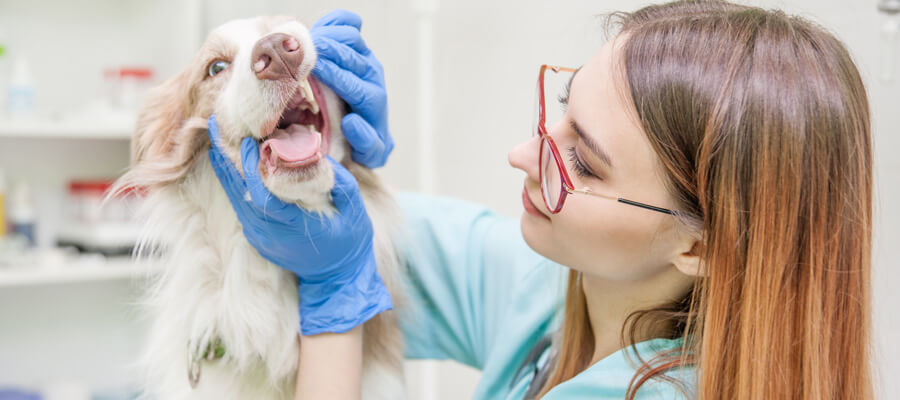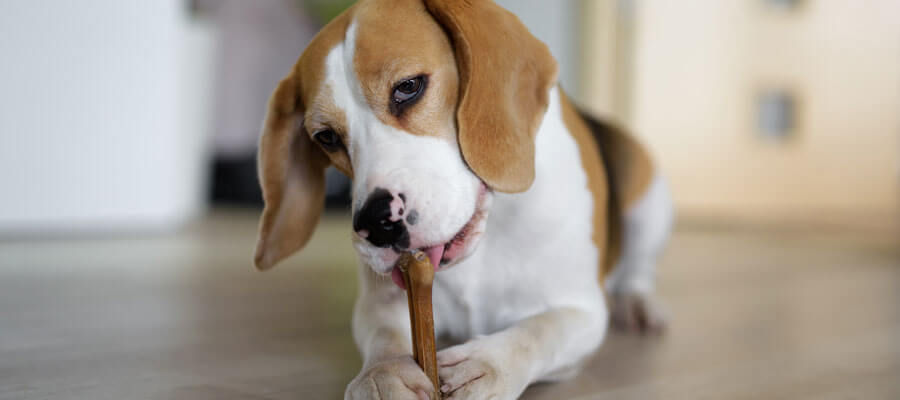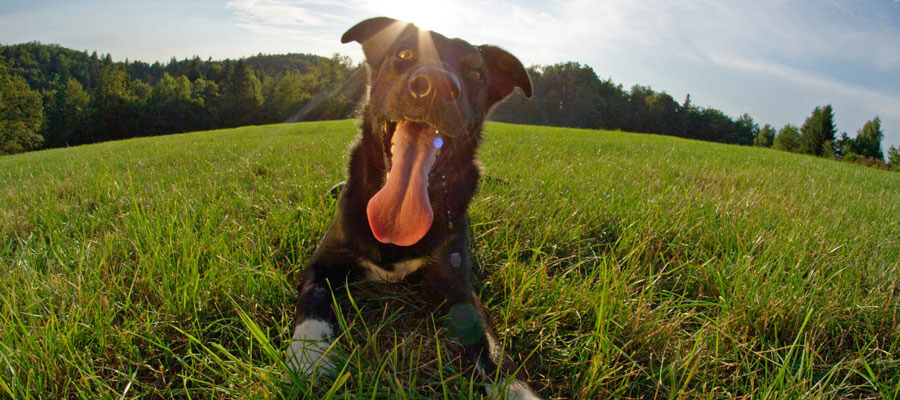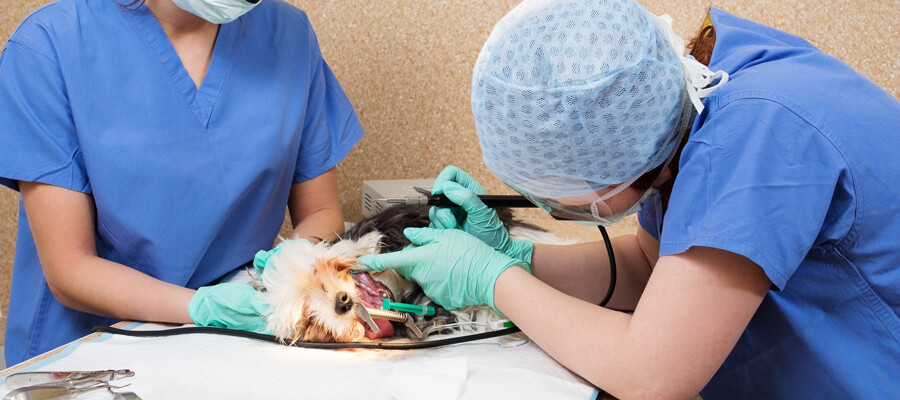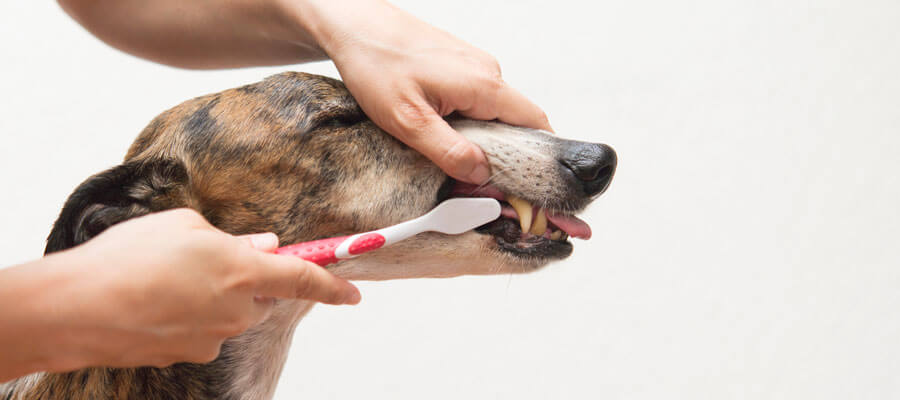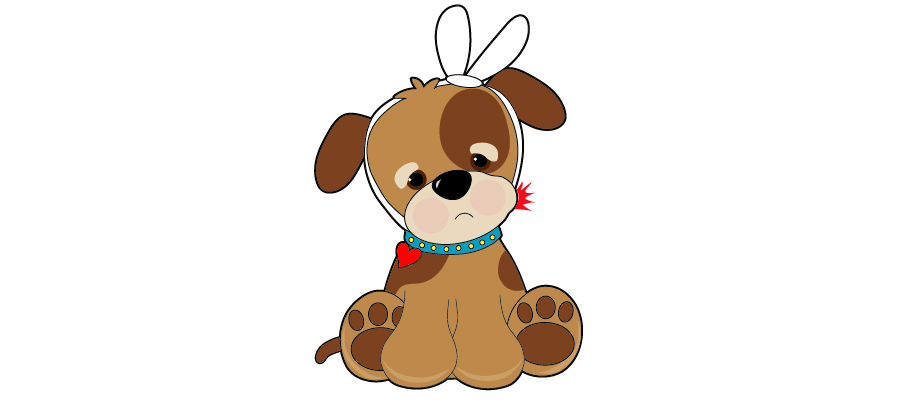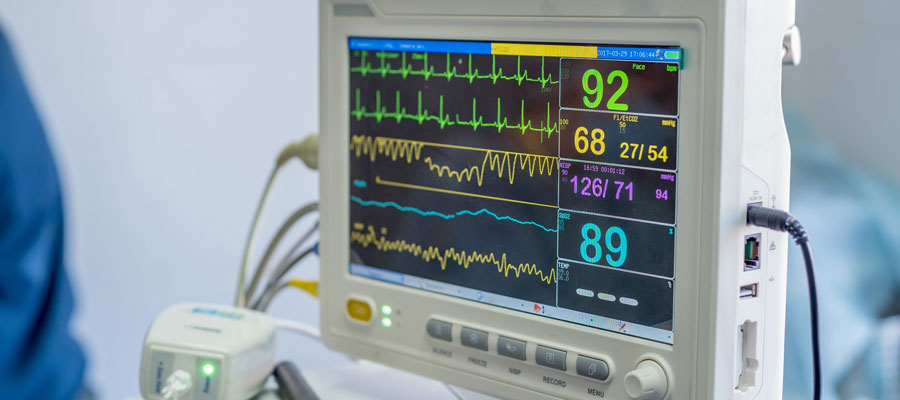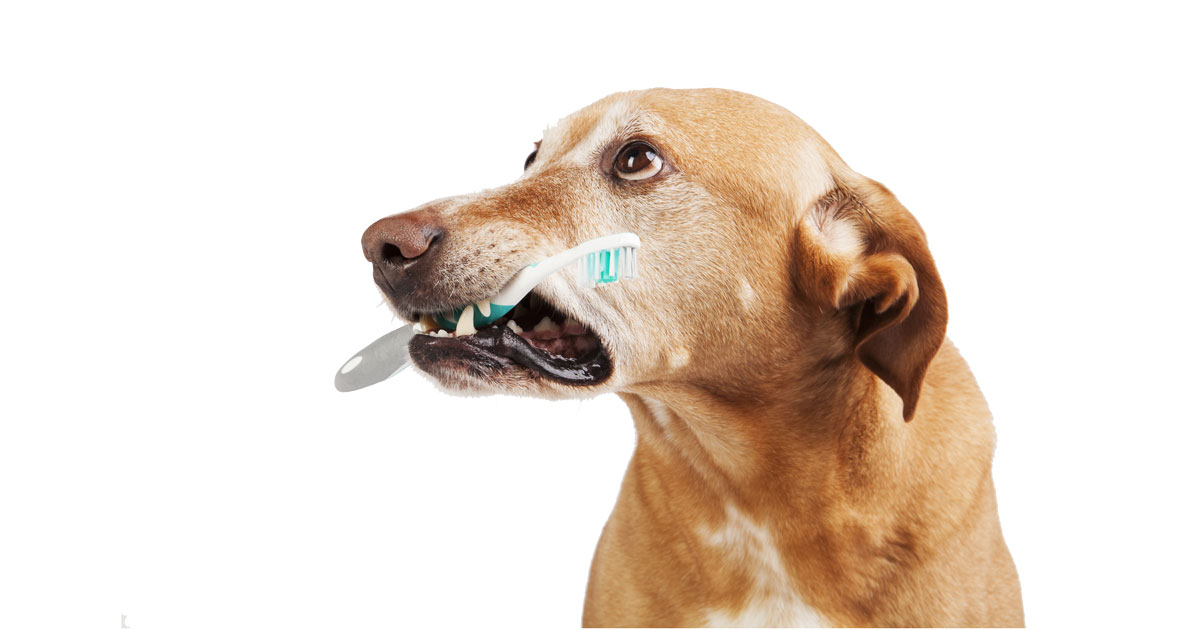During every exam at Intermountain Pet Hospital, our veterinarians will thoroughly examine a pet’s teeth to check for overall dental health of the teeth and the gums. If the doctor determines that a pet’s teeth are at an index score of 2 or 3, they will recommend a professional dental cleaning.
Read More
Topics:
Pet Dental Health,
Dog Dental Health
We all know a trip to the dentist isn't exactly the highlight of our day, and for our furry friends, dental hygiene is often more neglected. While a bit of bad breath might seem like a minor inconvenience, untreated dental disease in pets can actually have serious, and even fatal, consequences.
Read More
Topics:
Pet Dental Health,
Dog Dental Health
You've tried everything to get Fido to let you brush his teeth. Begging, pleading, and yes, even hog-tying your pup, and still, he fights it every single time. It's exhausting, we know.
Read More
Topics:
Pet Dental Health,
Dog Dental Health
Our pet’s dental health is not something most of us think about every day. But dental health issues can lead to discomfort, pain, and a myriad of other health problems.
Read More
Topics:
Pet Dental Health,
Dog Dental Health
Can I just say that I love my veterinarian. She’s the best. Mom says her name is Dr. Willis and we’re going to go see her today. On the way to my appointment Mom lets me put my head out the window which is truly bliss.
Read More
Topics:
Pet Dental Health,
Dog Dental Health
February is Pet Dental Health Month, which is a big deal to everyone at Intermountain Pet Hospital. Over the years, we've heard all the reasons why people don't brush their dog's teeth. The most common is "my dog won't let me brush his teeth." Since brushing your dog's teeth is so important and shown to be 80% effective in preventing dental disease, we're going to give you three easy steps to follow to get your pup to love getting his teeth brushed.
Read More
Topics:
Pet Dental Health,
Dog Dental Health
We talk a lot about periodontal disease, and the importance of good dental health for all pets. And for good reason, it is one of the most common medical diseases for pets in America. It’s estimated that by the age of three, 80% of dogs have some sort of active dental disease. If dental disease persists long enough, your pooch is in real danger of getting an abscessed tooth.
Read More
Topics:
Pet Dental Health,
Dog Dental Health
Our veterinarians are frequently asked during regular visits about if we can do anesthesia-free dental cleanings. Dr. Bingham state that he alone gets that question weekly. It's a question that loving pet owners think about a lot. The answer is: while some clinics do, we do not. We're going to go over the reasons why.
Read More
Topics:
Pet Dental Health,
Dog Dental Health
Our pets can’t verbally communicate when their teeth ache, or when it hurts to chew. And you can’t usually tell that your dog has dental issues until it has gotten to a serious point.
If you ask your veterinarian if they recommend a dental cleaning, the answer will always be, “Yes.” Always.
Read More
Topics:
Pet Dental Health,
Dog Dental Health
Are you brushing your dog’s teeth daily? Weekly? Even occasionally? If you’re not committing to this vital part of your pet owner responsibilities, it’s nearly a guarantee that you and your dog will pay for it. Your dog could already be living with daily pain as a result of dental disease, and the longer you wait to schedule your dog’s dental exam and start taking care of their teeth, the more likely you are to end up with issues.
Read More
Topics:
Pet Dental Health,
Dog Dental Health
